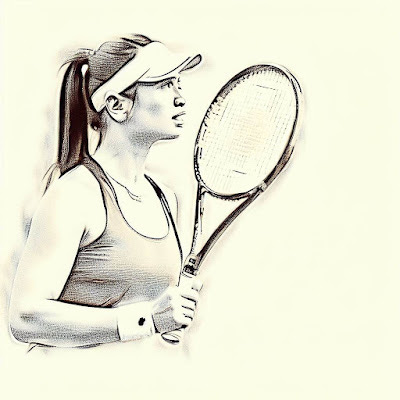Mastering the Mental Game in Tennis: Unleashing the Champion Mindset
In the highly competitive world of tennis, mental training has emerged as a vital component for achieving peak performance. While physical skills and technical prowess are undoubtedly important, the mental aspect of the game often separates the great from the exceptional. In this blog post, we explore the significance of mental training in tennis, delve into the science behind it, and draw inspiration from the success stories of legendary players. Additionally, we provide a range of effective mental training exercises to enhance your own mental resilience on the court.
The Science Behind Mental Training:
Scientific research has substantiated the impact of mental training on athletic performance, specifically in tennis. Neuroscientific studies reveal that mental imagery exercises can stimulate neural pathways associated with motor learning and improve performance outcomes. Moreover, studies in sports psychology highlight the positive effects of mental training, such as increased self-confidence, improved focus, and better emotional regulation. By honing mental skills, tennis players can optimize their cognitive processes and maximize their competitive edge.
Credit: TennisMind.Org
Success Stories:
1. Rafael Nadal:
Rafael Nadal, the epitome of mental fortitude in tennis, has showcased unwavering resilience throughout his illustrious career. His mental training regimen includes techniques like mindfulness meditation and breathing exercises. Nadal's ability to remain focused and composed during high-pressure moments has played a pivotal role in his unprecedented success on all court surfaces.
2. Tracy Austin:
Tracy Austin, a former World No. 1 and winner of three Grand Slam titles, is a testament to the power of mental strength in tennis. Despite facing numerous setbacks, including career-threatening injuries, Austin consistently exhibited remarkable mental resilience. She attributed her ability to bounce back and succeed to mental training, which involved visualization, positive self-talk, and the cultivation of mental toughness.
Mental Training Exercises For You To Implement Into Your Life and Game:
1. Mental Imagery and Visualization: Engage in vivid mental imagery exercises where you imagine yourself executing perfect shots, moving swiftly, and experiencing success on the court. Visualization enhances muscle memory, boosts confidence, and prepares the mind for optimal performance. Picture yourself in different match scenarios, visualizing positive outcomes and the emotions associated with victory.
2. Positive Self-Talk: Develop a repertoire of positive affirmations that reinforce your self-belief and confidence. Replace self-doubt with empowering statements such as "I am strong, focused, and capable," or "I embrace challenges and perform at my best under pressure." Incorporate positive self-talk into your daily routine, especially during training and competitive matches, to reinforce a resilient mindset.
3. Mindfulness and Meditation: Practice mindfulness exercises to cultivate present-moment awareness and enhance focus. Engage in mindful meditation, focusing on your breath or bodily sensations, to quiet the mind and improve concentration. Mindfulness helps you stay grounded, reduce distractions, and respond effectively to the demands of the game. Integrate short mindfulness sessions into your training regimen to enhance mental clarity and decision-making.
4. Emotional Regulation Techniques: Develop strategies to manage and regulate your emotions during matches. Deep breathing exercises, such as diaphragmatic breathing, help calm the nervous system and maintain composure. Identify triggers that may lead to frustration or anxiety, and implement techniques like self-talk, visualization, or brief time-outs to regain control and refocus.
5. Goal Setting and Mental Preparation: Establish clear and attainable goals for each match or training session. Break down larger goals into smaller, manageable objectives to maintain motivation and track progress. Develop a pre-match routine that incorporates physical warm-ups, mental preparation exercises, and rituals that help you mentally transition into a competitive mindset.
Credit: TennisMind.Org
Mental training in tennis is not merely a supplementary aspect but an integral component of a player's success. Through the examples of tennis icons like Serena Williams and Novak Djokovic, we can witness the transformative impact of mental resilience on the court. By incorporating mental training exercises such as visualization, controlled breathing, positive self-talk, and mindfulness into their routine, players can unlock their full potential and elevate their performance to new heights. So, let us not underestimate the power of the mind in tennis and embark on the journey of mental training to master the game.




